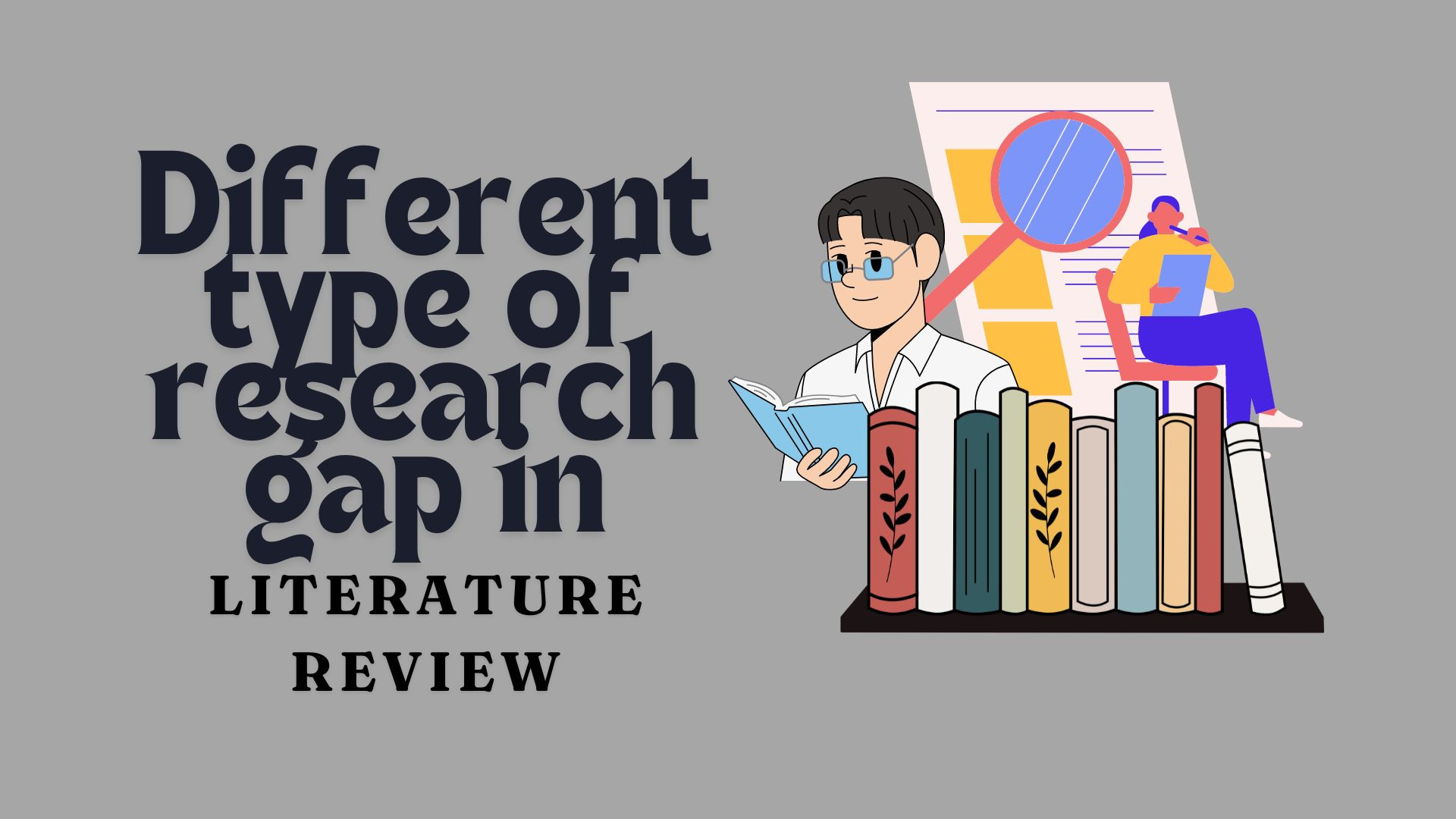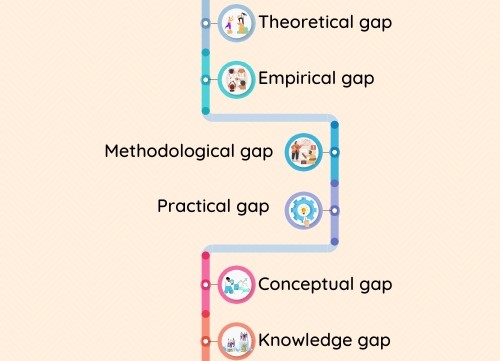
Research gaps are an essential part of any literature review. However, the researchers need help to identify the research gaps in the literature review. Moreover, there is no official framework or procedure to identify literature gaps in a literature review. Research gaps are present in any type of research work. However, the gap identified by one researcher may not be considered a gap by any other researcher. The difference in perception by different researchers is the main factor for the disagreement on research gaps in the literature review. The following article will be beneficial in providing information on different types of research gaps in literature reviews.
Research gap in a literature review
The literature review section in a research paper is also responsible for evaluating past information regarding the research topic. However, it also helps in the identification of various types of gaps present in the literature. As per the definition given by Robinson, a research gap generally happens when the research fails to draw a conclusion from the viable resources on the research topic. The research gap is a starting point for new research and gathering further information regarding the research topic. The research gap in any literature review can be considered both as the output and input of the literature review as it stimulates the researcher for further research.
Types of research gaps
Research gaps are generally formed due to unanswered questions, the emergence of new trends and contradictory findings in the literature review section. There are six major types of research gaps present in a literature review.

Theoretical gap
Any gap which is identified in the existing model and theories related to the research topic which is still not evaluated is popularly known as a theoretical gap. The research can identify a theoretical gap in a research paper by evaluating the existing literature and finding inconsistencies, gaps, and limitations present in the literature. For instance, in financial research, a literature gap arises when the literature review needs to provide information regarding the factors responsible for financial bubbles in the market.
Empirical gap
Empirical gaps are termed undiscovered and need more information in the research, which can only be found by conducting empirical research. Whenever the data present or the empirical study conducted fails to answer any questions, it results in creating gaps in the literature review, which are known as empirical gaps. For instance, the empirical gap exists in environmental governance, social factors and financial performance. As per various types of literature reviews, there is a positive relation between these factors, whereas other researchers consider it as a negative association.
Methodological gap
The method research gap or methodological gap refers to the gap present in the methodologies and procedures used in the existing research studies, which impacts the results and findings of the research. Any gap in research methodology is crucial as it impacts the overall reliability and accuracy of the results and findings in the research. Any gap in the research methodology also results in hampering the accuracy of the data analysis, reduces the scope of the study for future research and affects the development of solutions and models based on the research study. For instance, when conducting financial research, one may sometimes need help collecting the required data, which can cause methodological gaps. As a result, the lack of the required amount of data results in impacting the ability of the researcher to conduct further research, which helps in causing methodological gaps.
Practical gaps
Any difference present in theory and actual practice results in causing a practical gap in the literature review. The presence of a practical gap makes it essential for the researcher to conduct future research to fill the gaps to improve the practical application of the theoretical concepts and models. Practical gaps are also known as theoretical action gaps and theoretical action knowledge gaps. For instance, a gap in finance knowledge can be accessed by the ability of the individual to use financial education programs and online resources, which can help the individual to apply them in actual situations. However, the financial gap occurs due to differences in the knowledge that varies among the populations.
Conceptual gap
These types of gaps generally occur when there is a difference in the consistency of a concept or definition, application, or interpretation of facts and data, which results in understanding and clarity in the minds of the researchers. The presence of conceptual gaps in the literature review results in clarity and more precise definitions of concepts and interpretations. For example, there is a conceptual gap present in the creation of the framework that helps in the identification of the importance of managing stakeholders and improving the long-term performance and sustainability of the organization.
Knowledge gap
The knowledge gap refers to the gap present in the existing knowledge regarding the topic and the knowledge required for researching a topic. Some significant reasons contributing to the creation of knowledge gaps are lack of adequate resources, limited research, contradictory information and many more. To identify the knowledge gap present, it becomes essential for the researchers to extensively examine the available literature and highlight the areas requiring further research. The researcher can also conduct surveys and interviews to gather more information about public opinion and awareness of the general people regarding the problem identified in the research. Reducing knowledge gaps helps increase knowledge regarding a particular problem and gives rise to new theories, practices and concepts. For example, knowledge gaps are the increasing rise of financial technologies over the traditional banking system. The increasing risk of cybersecurity, data breaches, identity theft and cyber issues. To reduce the research gap, the researchers can study different financial risks and provide risk management strategies for banks and their customers.
Conclusion
The main reason for forming a research gap is the disability of the researcher to draw meaningful conclusions from the available research. Research gaps play an essential role during the literature review process; as q a result, addressing the literature gaps can help improve the amount of knowledge present on a specific topic and help draw better conclusions in the future.


